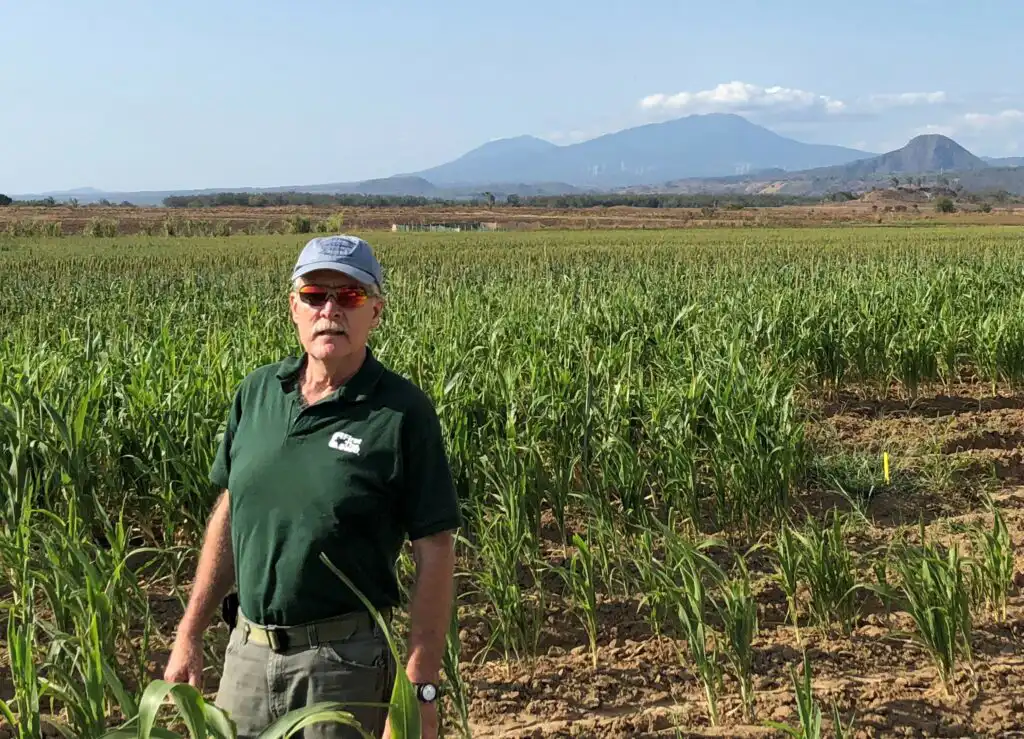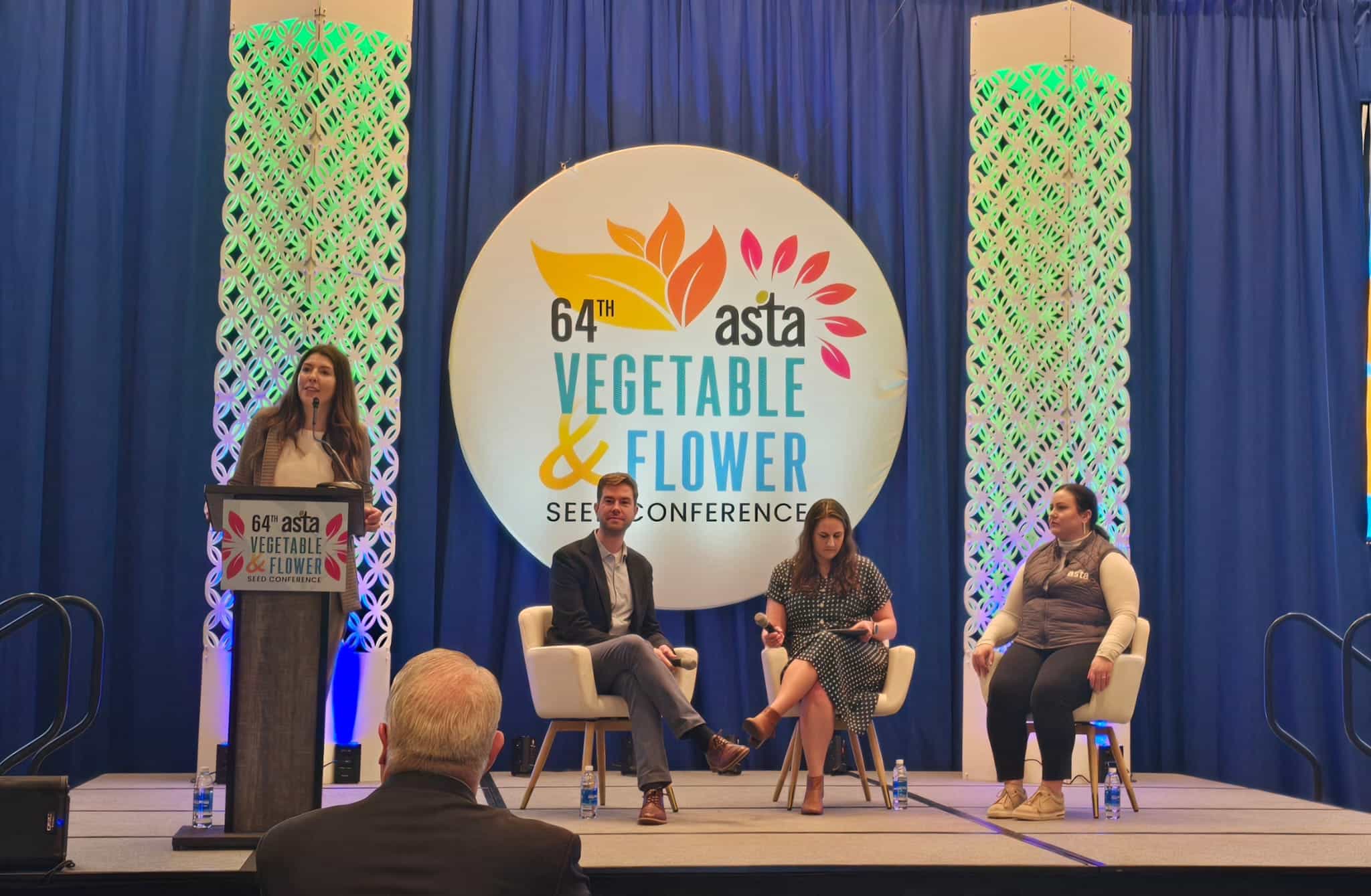Learn to effectively connect with lawmakers
Whether a handshake, elbow bump, personal meeting or Zoom call, stakeholders within the seed industry have had to learn to navigate the new normal to stay connected. That includes efforts to educate policy makers about critical issues affecting the industry.
While those involved in connecting with legislators and staffers at the state and federal levels all have tips for success, there is one thing they agree works. It’s all about establishing and maintaining relationships.
“The best way to connect with lawmakers is to start a dialogue,” says Brad May, vice president, global strategic marketing seed treatments, with BASF. May also is incoming American Seed Trade Association (ASTA) chair. “We share information on the level they need and listen to their concerns and questions. At the same time, it is very effective to share firsthand experiences that lawmakers can relate to, especially when it leads to safe and healthy sustainable food.”
John Latham, president of Latham Hi-Tech Seeds in Sheffield, Iowa, and current ASTA chair agrees.
“Get into policy and share top priorities but connect it to your business or family so they remember you,” he says. “If the topic is controversial, it may be difficult to discuss, but that makes it more crucial. Tell the ‘why’ story and back it up with fact and reason.”
Establish the Right Connections
The seed industry is unique in that it provides many entries for establishing relationships and discussing issues. Denise Gentsch, legislative director for Texas Seed Trade Association, says its diverse members include independent company owners, seed breeders, national and international corporation sales reps and managers and allied shipping and equipment manufacturers.
“Every segment shares an understanding of the industry from a different perspective,” she says, “so opportunities crop up regularly to educate lawmakers, regulators, customers and the public.”

Denise’s husband, Bryan Gentsch, is executive vice president for Texas Seed Trade Association. He relies on Denise to coordinate the strategy and process of advocacy efforts while he furnishes the technical and business logic of their association’s positions in a concise, communicable form.
“Denise interacts with the right people, briefs me on what not to say, provides the necessary background on legislators and staff, and reiterates the important points for me to share,” he says.
As with everything pandemic-related, communicating with state and federal legislative staffers has changed. To establish relationships requires more virtual and phone meetings, more written communications and less or no dropping into a legislator’s office.
“It has always been respectful to ask the guidelines for office policies at the state and federal levels,” says Denise. “Now it is even more imperative to inquire about masks, appointments and preferences to reduce embarrassment for you and the legislative staff.”
Bryan has found personal relationships are not essential. “As long as a professional connection is made, legislators generally have confidence in our abilities to be a reliable information source. The challenge is staff turnover can be high, which affects ability to cultivate relationships.”
Educate About Critical Issues
“It is all about relationships and knowing they can call us,” adds Pat Miller, ASTA director of state government affairs. “I like to be ahead of the curve in sharing information with legislators, so when things happen on issues, they know they can call me first.”
Miller works with state leaders to identify and frame critical issues. With a new administration, the list of topics of interest nationwide has broadened. One overarching theme has been sustainability, which encompasses many of the other top priority issues like innovation, treated seed, plant breeding and gene editing, pollinators, conservation, and weeds.
“ASTA is positioned to be effective on any seed-related issue. GMO labeling and regulations legislation was extremely active in the states for a few years,” he says. “Congress stepped in with a uniform national solution that eliminated potential for a regulations patchwork across states.”

Latham says educating urban lawmakers about rural issues is part of that process. “This is an example of the importance of relationships,” he says. “We need to keep them informed about the seed industry with regard to plant breeding. We want to avoid the negative GMO experience.”
Denise Gentsch finds policymakers and staffers are typically intrigued but quickly overwhelmed by discussions about new discoveries in seed breeding. Lacking the background, she explains that legislators and their constituents can be influenced by emotional, simplistically misleading messages that are meant to sow fear and doubt. So, to maintain confidence in the industry, she says the message must make them care and want to know more about industry issues.
“I applaud ASTA for their role in alleviating so many new breeding technique problems already,” adds Bryan Gentsch. “In Texas, we are in our third legislative effort to privatize seed certification and join the 36 states that do not rely on a state agency for this service. We also realize reluctance to revisit seed quality law which has been virtually untouched since 1938 in Texas. But we persist because, if fixed, it will pay dividends to every seed company in Texas.”
Operate Efficiently at State Level
Miller keeps an eye on these Texas issues and others because they generally spread from one state to another as legislative staffers communicate with each other. He works with Janae Brady, ASTA senior director of government affairs, to monitor movement to the federal level as well.
“Since any federal issue most likely started at the state level, this is a way to see what may be potentially headed our way down the road. We learn from the folks at home,” she says. “Often, the state and federal activities we are working on can mirror each other.”
Miller works with grassroots members, coalitions with other ag groups and state ag departments.
“Most states are in session in the spring only, so there is a flurry of legislative activity then. Our work with regulators writing rules may be more involved and take place all year long,” he says.
Denise Gentsch notes that breaking into that flurry of activity with a message that sticks is vital to state lobbying success. In a previous position, she worked for a freshman state representative.
“As lawmakers filed several thousand pieces of legislation, my boss needed background,” she says. “Who supported the legislation and why, who rejected it and was the stakeholder a constituent? How did the issue affect his district, and did it conflict with his personal values?”
Shannon Latham, John Latham’s wife and Iowa House District 54 representative, says she operates in a similar manner. She started her career as Agribusiness Association of Iowa director of legislative affairs and learned to appreciate succinct, 60-second sound bites.
“I may see 800-1,200 bills a session and lobbyists help me understand what the impact of those bills might be,” she says. “It is an education process to help legislators understand their constituents. There are about 31,000 people in my district, and I have found people want to be heard. Great understanding comes from me listening and asking questions.”
Communicate Regularly at Federal Level
The same basic processes apply at the federal level, although there may be more year-round interactions with legislators and their staffers. May says ASTA has been effective in routinely reaching out and is a respected voice on seed issues.
“Congress needs to continue to hear about our great innovations,” he says. “The best thing we can do is encourage the federal government to make sure laws are science-based and show consumers and trading partners the U.S. leads the world in safe, reliable agricultural solutions.”
Brady, who previously worked for Senate Ag Committee Chairman Pat Roberts, says ASTA efforts require staying in touch with the right staffers to make sure members of Congress have the best information to make decisions regarding the seed industry.
“Advocacy has changed with the pandemic, and we have learned to be flexible. Since we are no longer going to offices, we use calls and work in coalitions to deliver our messages,” she says. “With a new Administration, Congress and changing USDA and EPA staff, we are identifying the new people we need to work with and establish relationships with them.”
Brady sees this as an expanded opportunity for the future. She predicts Zoom meetings will continue post-pandemic and be used in conjunction with in-person visits.
Practice These Lobbying Tips
For stakeholders new to lobbying, these tips from the experts offer ways to be effective:
- Legislators are people, too. They want to listen to you, so help them out by providing the information they need to make decisions.
- Introduce yourself, where you are from and whether you are a constituent. Be concise in your message and open for questions.
- Share an executive summary of an issue that efficiently lays out the facts. Be as accurate as possible and never intentionally give false or inflammatory information. Legislators remember who they can trust to give them the truth in an objective manner.
- Don’t take a negative or partisan tone. Seek common ground.
- Use all the tools available to connect, including in-person, calls, email and Zoom.
- Have Plan A, Plan B and Plan C. Plan A is a one-minute “elevator message” with a one-page “leave behind.” Plan B is a more relaxed discussion with a one-pager and additional detailed piece. Plan C is two or three one-pagers that flow in a logical order, are easy to read and beg for follow-up.
- Get over any perceived lack of “fairness.” Lobbyists are the people you hire to protect you from the people you elect, and fair is not a word that experienced lobbyists use often.
- Recognize how many things staff are juggling and get a measure of how chaotic things are prior to your appointment. Being respectful of time pays dividends.
- When you’ve made the sale, stop selling. If you receive indications that you have gained support, wrap-up quickly, say thank you and exit. But if in hostile territory, make sure you deliver the full-meal deal, time-share condo sales pitch with appropriate courtesy.
- Don’t be perturbed with difficulty meeting directly with a legislator. Including staff is ideal. A meeting with a legislator and no staff present is generally a waste of time.
- Come to grips with the fact that your state capitol and D.C. are run by underqualified, underpaid, underappreciated 23-year-old staffers. View them as friends and allies.
- It is unhealthy to be emotionally invested in any legislation. You’ll suffer less stress and live longer if you remain objective and understand some things are beyond your control.












